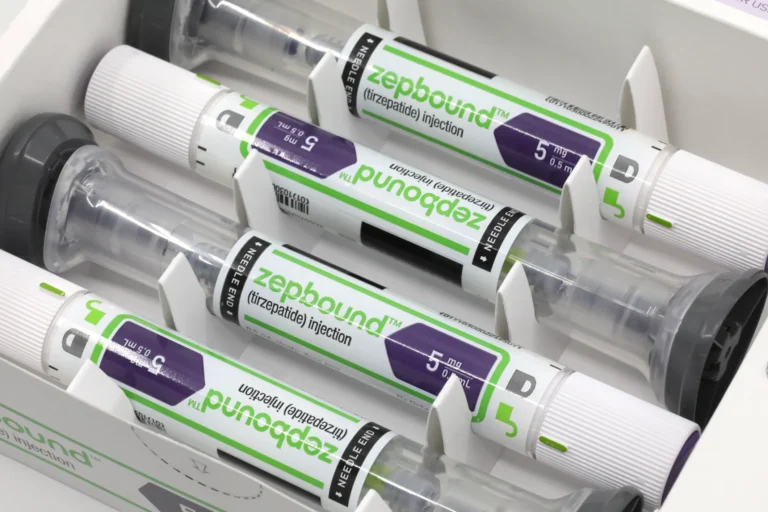
UCB Publishes Final Analysis of Fintepla® Open-Label Extension Study in Lennox-Gastaut Syndrome Demonstrating Sustained Seizure Reduction and Improved Quality of Life
UCB, a global biopharmaceutical company, announced that the final analysis of its open-label extension (OLE) study evaluating Fintepla® (fenfluramine) in patients with Lennox-Gastaut syndrome (LGS) has been published in Epilepsy and Behavior. The long-term study assessed the safety, tolerability, and effectiveness of fenfluramine in children and adults with LGS, a severe developmental and epileptic encephalopathy characterized by drug-resistant seizures and developmental impairment.
Results from the study demonstrated a sustained and clinically meaningful reduction in the frequency of drop seizures—seizures associated with a fall—from Month 2 through the end of the OLE period compared with baseline. In addition to seizure control, caregivers and investigators reported improvements in global functioning, social interactions, overall quality of life, and emotional well-being. Importantly, no new or unexpected safety concerns emerged during the study.
This publication follows the recent final analysis of a similar OLE study of fenfluramine in Dravet syndrome, which showed a consistent reduction in convulsive seizure frequency and continued long-term tolerability. Together, these findings underscore fenfluramine’s broad therapeutic potential across multiple severe childhood-onset epilepsies.
Meaningful and Sustained Clinical Outcomes
The OLE enrolled 247 patients between the ages of 2 and 35 years (mean age: 14.3±7.6 years) from clinical sites across North America, Europe, and Australia. Participants were treated with fenfluramine for a median duration of 364 days, with daily doses averaging 0.4±0.1 mg/kg/day.
From Month 2 of the study through the end of treatment, patients experienced a significant median reduction of 31.1% (P<0.0001) in the frequency of drop seizures relative to baseline. When analyzed by age group, reductions were 27.6% in pediatric patients (n=170, P=0.0005) and 40.0% in adult participants (n=70, P<0.0001)—demonstrating the treatment’s efficacy across age ranges.
At the study’s conclusion, 59.9% of caregivers (142/237) and 57.0% of investigators (135/237) rated patients as “improved” on the Clinical Global Impression–Improvement (CGI-I) scale, reflecting positive changes in overall condition and daily functioning.
Moreover, results from the Quality of Life in Childhood Epilepsy Questionnaire (QOLCE) showed an average improvement of 2.9 points (P=0.0166) after 12 months, indicating measurable gains in daily life, emotional well-being, and social participation for both patients and families.
Parents and caregivers reported notable benefits extending beyond seizure control, including improved social interactions, reduced stigma, better general health, and lower caregiver anxiety—underscoring the multifaceted impact of fenfluramine treatment on family life and patient care.
Safety and Tolerability Profile
Fenfluramine continued to demonstrate a favorable safety profile, consistent with prior studies. The most common treatment-emergent adverse events (TEAEs)—occurring in 10% or more of participants—included decreased appetite, fatigue, nasopharyngitis, seizures, and pyrexia.
Importantly, no cases of valvular heart disease or pulmonary arterial hypertension—historical safety concerns associated with older formulations of fenfluramine—were reported during the study. Only 5.3% (13 patients) discontinued participation due to adverse events.
Expert Perspective on Clinical Significance
Dr. Kelly G. Knupp, Associate Professor of Pediatrics and Neurology at the University of Colorado Anschutz School of Medicine and co-author of the publication, emphasized the importance of these findings:
These data reinforce the long-term safety and tolerability of fenfluramine in children and adults living with Lennox-Gastaut syndrome, a condition with significant unmet medical need. The sustained reduction in seizure frequency, coupled with meaningful improvements in quality of life for both patients and their families, underscores the importance of addressing not just the clinical but also the emotional and social challenges faced by these families every day.”
Regulatory Status of Fintepla
Fenfluramine is approved as an add-on therapy for the treatment of seizures associated with Dravet syndrome and Lennox-Gastaut syndrome in patients aged 2 years and older in several global markets:
- In the European Union (EU), Fintepla is indicated as an adjunctive treatment for LGS and Dravet syndrome.
- In the United States, fenfluramine oral solution has FDA approval for the same indications in patients aged two years and older.
- In Japan, the medicine is similarly approved for both conditions as an add-on anti-epileptic therapy.



